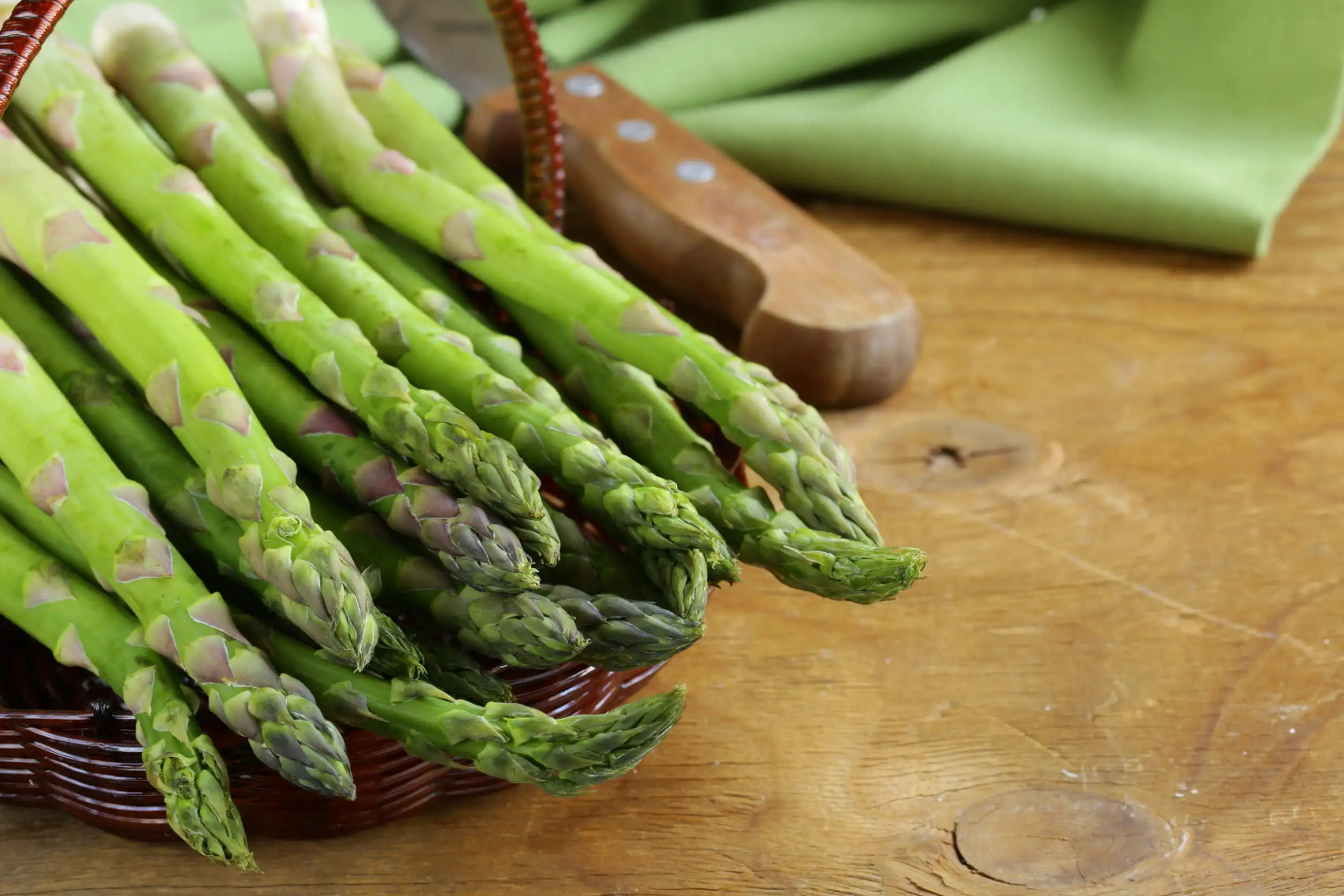Is it Possible to Fight a Hangover by Eating Asparagus?


Written and verified by the nutritionist Saúl Sánchez Arias
In social networks, the idea has spread that the consumption of asparagus is optimal to combat hangovers. These vegetables contain a large number of antioxidant substances that could contribute to repairing the damage caused by alcohol while also alleviating the symptoms of a hangover. However, in no case is the effect comparable to that of analgesic drugs for the treatment of headaches associated with alcohol intoxication.
Before starting, it should be noted that no dose of alcohol is safe or healthy. This substance is toxic to the body and it is best to eliminate it completely from the diet in order to keep the body in good working order over the years. Despite this, its consumption is socially very accepted, so it’s difficult for most people to give it up.
Eating asparagus to cure a hangover
The truth is that, at present, there are no scientific articles that prove the power of asparagus to accelerate the cure of hangover. In reality, the only thing that can be done in this regard is to avoid drinking or to drink less.
Alcohol causes a series of alterations in the internal physiology that are difficult to compensate for in certain situations, so it takes time to overcome them. One of the key points would be dehydration.

The day after an alcohol intoxication, it’s recommended to drink plenty of mineral water to compensate for the loss of fluids and to prevent symptoms from becoming more intense. The intake of certain substances with antioxidant properties may also be indicated. In this regard, the presence of foods of vegetable origin in the diet should be emphasized. Tomato, among all of them, stands out for its concentration in lycopene, something that could help.
In any case, it’s important to avoid reaching this type of situation, since the damage generated on the organism is cumulative. A study published in the European Journal of Internal Medicine confirms this. A reduction of testosterone can be experienced in men with an increase in cortisol levels as well. This has catabolic and inflammatory effects, which could increase the incidence of other complex diseases and conditions over the years.
We think you may also enjoy reading this article: What Happens When you Drink Alcohol On An Empty Stomach
The benefits of eating asparagus
Although there’s no evidence that eating asparagus helps fight hangovers, it’s true that the positive health properties of these foods have been demonstrated. After all, this vegetable contains high-quality antioxidants.
Antioxidants limit damage to cellular DNA, which can prevent the development of diseases in the medium term. This is according to research published in Neurochemistry International. They may even reduce inflammation in the central nervous system.
Of course, the best type of asparagus to choose is always green asparagus. Many of the options that are offered in canned form do not have the same quality. Not only do they concentrate less phytochemicals inside, but an important part of the product’s fiber is lost. This substance has proven to be decisive in maintaining a good state of intestinal health in the medium term, avoiding problems such as constipation.

On the other hand, asparagus is a very versatile food at a culinary level. It can be consumed in salads, in scrambled eggs, sautéed… the possibilities are endless! It’s easy to introduce this food into your diet on a regular basis to take advantage of its benefits. It’s even a source of water-soluble B group vitamins. These must be supplied on a daily basis, as there are hardly any reserves of them in the body.
Like this article? You may also like to read: 6 Things You Should Never Do On An Empty Stomach
How to combat hangovers efficiently
We’ve already mentioned that the consumption of asparagus doesn’t seem to have a decisive effect on hangovers, at least not that has been proven by science. However, some basic strategies can be implemented in order to minimize its impact. The first of the tips that could be given in this regard is to avoid darker types of alcohol, as these are the ones that cause greater symptoms the next day.
In addition, it will be key to drink mineral water before going to bed to improve your state of hydration. If the concentration of water in the organism is reduced, it’s possible that headaches may manifest themselves with greater intensity. On the other hand, it’s advisable to eat before drinking alcohol. This ensures that the absorption of alcohol will be slower, which may reduce the effects of intoxication.
Asparagus is not a good hangover cure
As you’ve seen in this article, asparagus is not the best option to combat hangovers. Despite the antioxidants they contain, there’s no scientific evidence that they can help reduce symptoms or improve hydration.
In fact, there’s currently no truly effective natural food or substance for this purpose. Medications can be taken for headaches, but this only masks the problem.
Finally, remember that the best dose of alcohol in the diet is zero alcohol. It’s best to restrict your consumption of this toxic substance as much as possible to improve the state of your health in the medium and long term. Not only can hormonal alterations occur from its consumption, but endogenous protein synthesis is also blocked by alcohol intake. This is especially harmful for athletes, as it affects their ability to recover.
All cited sources were thoroughly reviewed by our team to ensure their quality, reliability, currency, and validity. The bibliography of this article was considered reliable and of academic or scientific accuracy.
- Vonghia, L., Leggio, L., Ferrulli, A., Bertini, M., Gasbarrini, G., Addolorato, G., & Alcoholism Treatment Study Group (2008). Acute alcohol intoxication. European journal of internal medicine, 19(8), 561–567. https://doi.org/10.1016/j.ejim.2007.06.033
- Majumdar, S., Gupta, S., Prajapati, S. K., & Krishnamurthy, S. (2021). Neuro-nutraceutical potential of Asparagus racemosus: A review. Neurochemistry international, 145, 105013. https://doi.org/10.1016/j.neuint.2021.105013
- Gill, S. K., Rossi, M., Bajka, B., & Whelan, K. (2021). Dietary fibre in gastrointestinal health and disease. Nature reviews. Gastroenterology & hepatology, 18(2), 101–116. https://doi.org/10.1038/s41575-020-00375-4
This text is provided for informational purposes only and does not replace consultation with a professional. If in doubt, consult your specialist.








